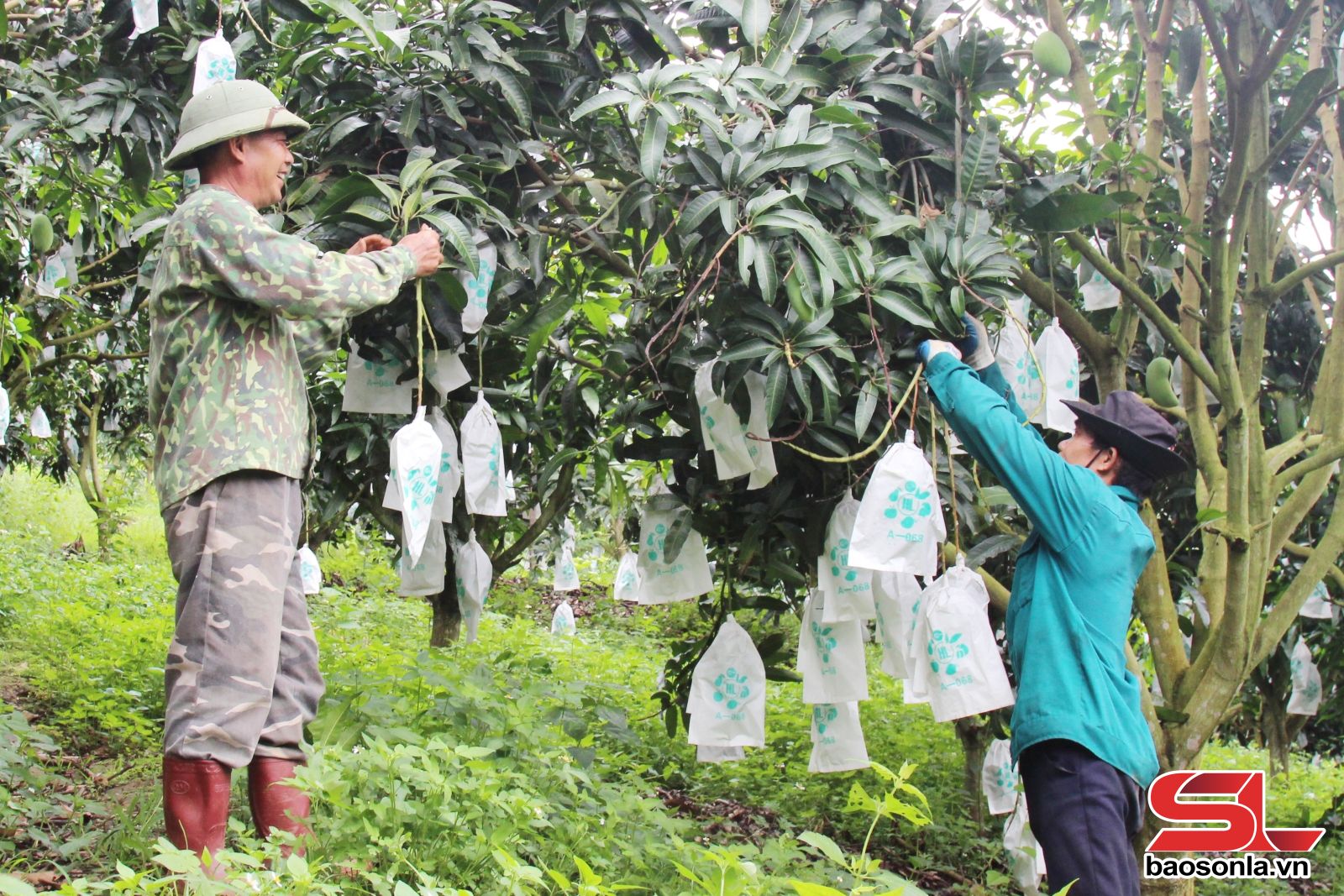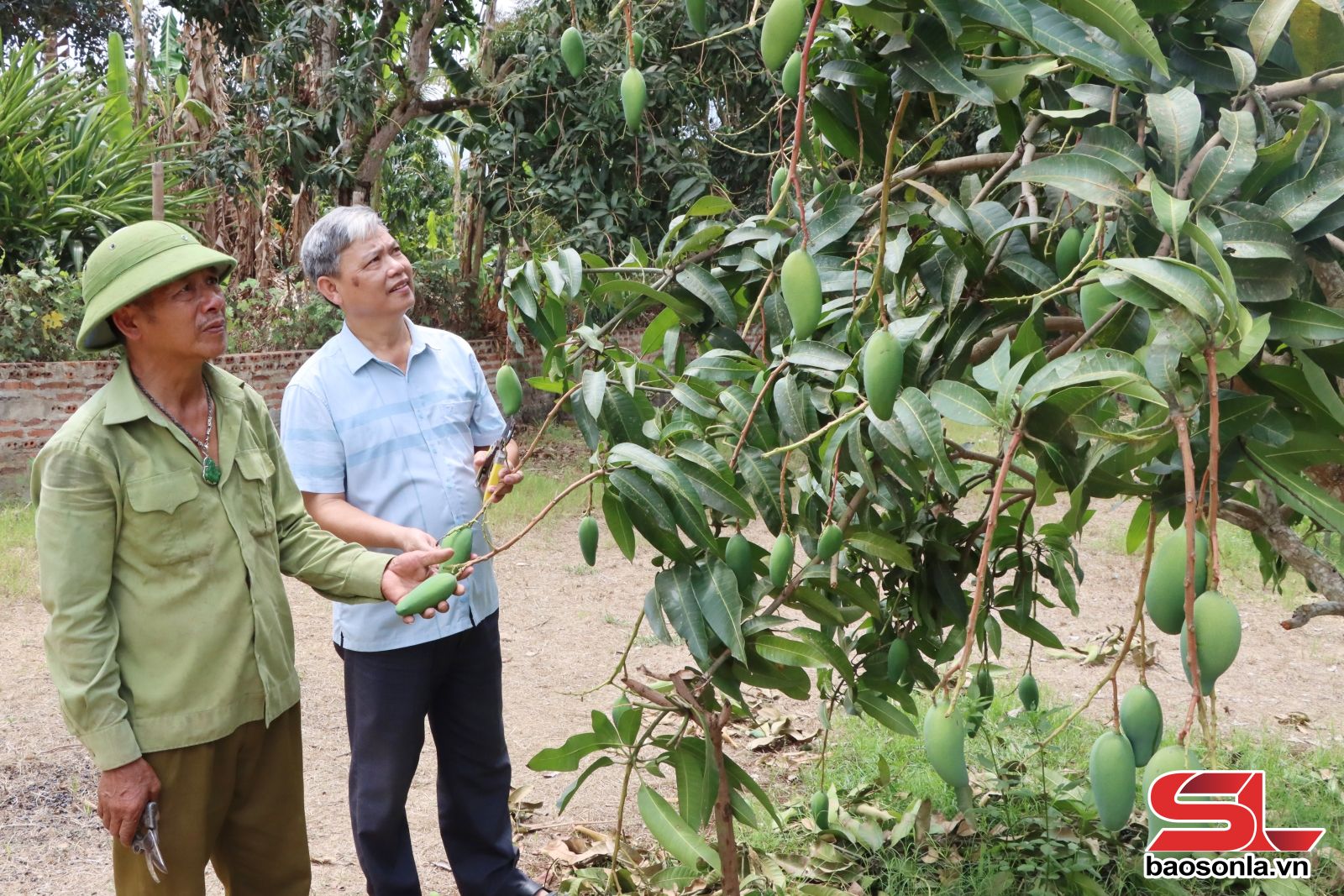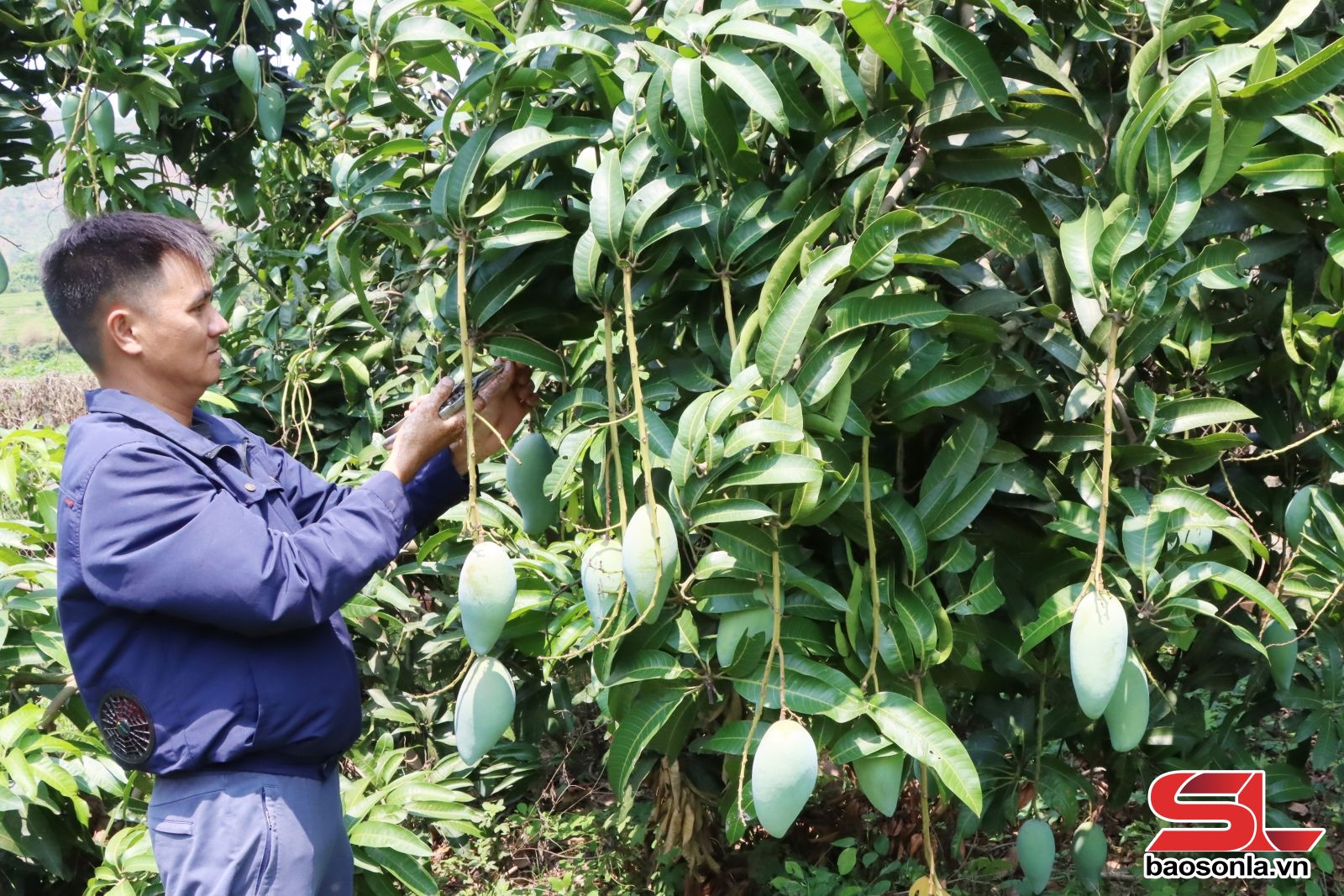

The family of Nguyen Van Vuong, a member of the Song Ma Mango Agricultural Service Cooperative in Na Nghiu commune, is pruning and caring for over 4 hectares of Taiwanese mango trees. Vuong shared that this year, thanks to favourable weather, mangoes have set well, and there are few pests or diseases. His family aims to harvest 38–40 tonnes of fruit this season.
The cooperative has seven members cultivating 10 hectares of mangoes, certified for production under VietGAP standards. Its members strictly follow the care procedures to meet the standards required by both domestic and export markets. Currently, several companies and long-standing partners have placed orders, aiming to supply wholesale markets, domestic supermarket chains, and exports to the Chinese market.

Farmers in Na Nghiu commune, Song Ma district, discuss mango cultivation techniques.
In Chieng Cang commune, which boasts over 200 hectares of mangoes, Quang Van Long, Chairman of the communal People’s Committee, said that the local mango yield reaches around 2,200 tonnes annually. Seven mango cooperatives in the area consistently apply proper care techniques to improve productivity and quality, maintain strong production linkages, and proactively sign contracts for product consumption. This year, they aim to export over 100 tonnes of this fruit to the Chinese market.
Song Ma district currently has 1,813 hectares of mangoes, mainly in the communes of Chieng Khuong, Chieng Cang, Chieng Khoong, Na Nghiu, Chieng So, and Muong Lam. Among these, 24 hectares have been granted planting area codes for export to China; 82 hectares are cultivated under VietGAP standards; and 120 hectares apply moisture irrigation technology. Thanks to favourable weather conditions this year, the district expects a yield of approximately 13,300 tonnes.
Lo Thi Bach, head of the district’s Agriculture and Environment Division, stated that the division has advised the district People's Committee to issue multiple directives for managing raw material areas. Efforts have been intensified to promote VietGAP-standard production, grant planting area codes, and strictly supervise production processes. The district has also boosted trade promotion, product marketing, and agricultural export efforts, while facilitating contract signing between enterprises and mango cooperatives. The focus is on selecting capable businesses and cooperatives to act as hubs for collection, processing, sale and export of mango products, gradually forming a sustainable production chain.

Farmers in Chieng Cang commune, Song Ma district, care for mango trees.
The district Agricultural Service Centre has assigned technical staff to oversee each facility certified under VietGAP standards and those granted planting area codes for export. These technicians guide local farmers in using certain plant protection products to control leafhoppers and stem borers. They also provide instructions on fruit bagging, fertilisation, irrigation, and pruning of overloaded branches. Strict monitoring is enforced to ensure that farmers do not use banned pesticides.
Thanks to the strong involvement of local authorities and the proactive, responsible compliance of farmers with technical procedures, this year’s mango crop in Song Ma district is expected to yield a high output, with a target of nearly 500 tonnes for export.






















You have 500/500 characters left
Please enter 5 or more characters!!!